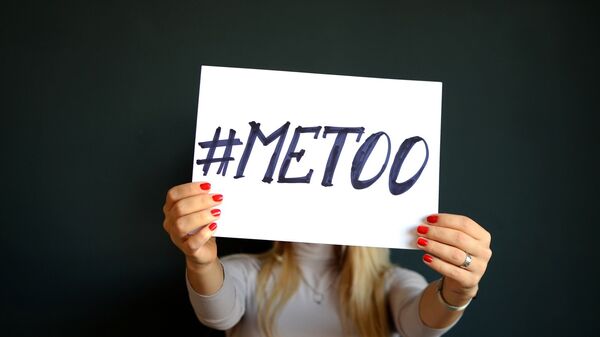On December 17, popular Japanese blogger and writer Ha-chu, shared her experience of being sexually harassed on her Facebook page, as well as in a Japanese language Buzzfeed article.
Ha-chu asserts that she was harassed by Yuki Kishim, a renowned Japanese creative director, while they both worked for Dentsu Inc., Japan's largest advertising agency. Kishim, Ha-chu's boss at the time, allegedly demanded she come to his home late one night and also demanded that she introduce him to a female acquaintance. Publicly sharing her story has inspired other victims of sexual harassment and assault to speak up on Twitter.
The #MeToo movement has spread like wildfire since the October revelations of widespread sexual misconduct accusations against powerful film producer and executive Harvey Weinstein. The phrase, long used by social activist Tarana Burke, gained rapid popularity when Alyssa Milano tweeted it in October to encourage women to publicize their experiences of sexual misconduct in an effort to demonstrate its widespread prevalence in today's society.
According to an analysis by Crimson Hexagon, a US social media analytics company, there were about 60,000 tweets on sexual misconduct over the past two months in Japan. The number of tweets increased by 10,000 in just two days, following Ha-chu's public sharing of her story.
According to the Asahi Shimbun, Kishi apologized to Ha-chu in a blog post.
"I am truly sorry and regret that I hurt her feelings and caused pain and failed to offer a proper apology until today," he wrote.
Mikiya Ichihara, a high-profile director and leader of a theater group in Japan, has also been accused of sexual harassment by multiple women. He apologized in a December 19 post on his website.
"I am determined to confront my deeds in the past so as to apologize to everyone I have harassed," said Ichihara.
A 20-year-old woman named Chino, who currently works at a theater company, is one who accused Ichihara of sexual misconduct, noting that she was sexually harassed by the prominent director while she was still a high school student.
Chino said that she decided to come forward to "prevent others from suffering."
"We have not been told that a harasser is wrong 100 percent in sexual harassment," she pointed out. "The notion should spread for young people."
According to a poll conducted by The Hill and Business Forward, sexual harassment is not the only challenge that many women face.
The poll revealed that 47 percent of women feel that they are treated unfairly, and 48 percent are not paid as much as their male counterparts, while 48 percent have inflexible work schedules and 48 percent are expected to be caregivers.
Earlier this year, Pew Research revealed that four of every 10 women experience gender-based discrimination.
The Hill and Business Forward poll also uncovered that Democratic and Republican women alike support equal pay, a national child care policy and easily-accessible birth control coverage.



